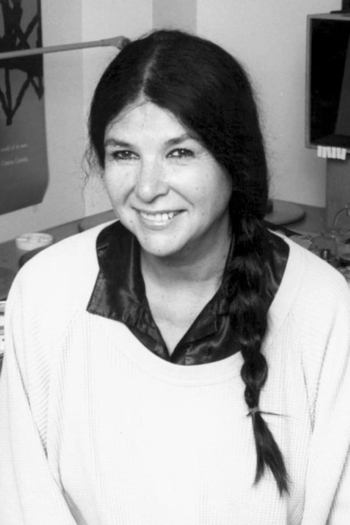
Alanis Obomsawin
1932 (93 года)Description above from the Wikipedia article Alanis Obomsawin, licensed under CC-BY-SA, full list of contributors on Wikipedia.
Is The Crown At War With Us?
Alanis Obomsawin
Alanis Obomsawin
In the summer of 2000, federal fishery officers appeared to wage war on the Mi'gmaq fishermen of Burnt Church, New Brunswick. Why would officials of the Canadian government attack citizens for exercising rights that had been affirmed by the highest court in the land? Alanis Obomsawin casts her nets into history to provide a context for the events on Miramichi Bay.
Is the Crown at war with us?
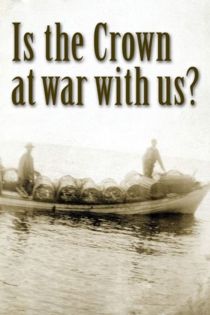
Kanehsatake: 270 Years of Resistance
Alanis Obomsawin
Alanis Obomsawin
In July 1990, a dispute over a proposed golf course to be built on Kanien’kéhaka (Mohawk) lands in Oka, Quebec, sets the stage for a historic confrontation that would grab international headlines and sear itself into the Canadian consciousness.
Kanehsatake: 270 Years of Resistance
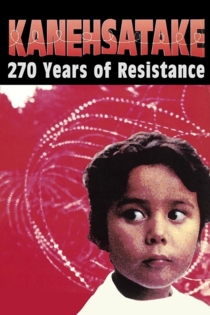
Richard Cardinal: Cry from a Diary of a Métis Child
Alanis Obomsawin
Cory Swan, Pauline Kerik
This short documentary is a moving tribute to Richard Cardinal, a Métis adolescent who committed suicide in 1984. Taken from his home at the age of 4 due to family problems, he spent the rest of his 17 short years moving in and out of 28 foster homes, group homes and shelters in Alberta. A sensitive, articulate young man, Richard Cardinal left behind a diary upon which this film is based.
Richard Cardinal: Cry from a Diary of a Métis Child
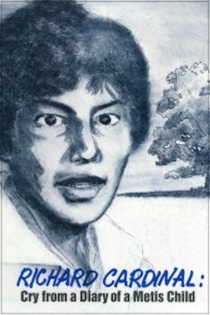
La part du diable
Luc Bourdon
Robert Charlebois, Mouffe
Quebec, on the cusp of the 1960s. The province is on the brink of momentous change. Deftly selecting clips from nearly 200 films from the National Film Board of Canada archives, director Luc Bourdon reinterprets the historical record, offering us a new and distinctive perspective on the Quiet Revolution.
The Devil's Share

Merata: How Mum Decolonised the Screen
Hepi Mita
Merata Mita, Hepi Mita
A documentary portrait of the pioneering indigenous filmmaker and activist Merata Mita and an intimate tribute from a son about his mother that delves into the life of the first woman from an Indigenous Nation to solely direct a film anywhere in the world. Known as the grandmother of Indigenous cinema, Merata’s independent political documentaries of the 1970s and 80s highlighted injustices for Māori people and often divided the country. Mita was fearless in her life, her activism and her art. Chronicling the director’s journey to decolonize the film and television screens of New Zealand and the world, the film documents her work, her early struggles with her family and her drive for social justice that often proved personally dangerous.
Merata: How Mum Decolonised the Screen
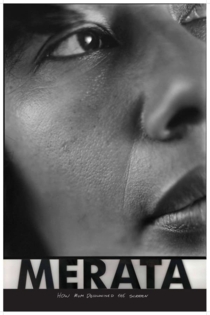
My Name Is Kahentiiosta
Alanis Obomsawin
This documentary short by Alanis Obomsawin tells the story of Kahentiiosta, a young Kahnawake Mohawk woman arrested after the Oka Crisis' 78-day armed standoff in 1990. She was detained 4 days longer than the other women. Her crime? The prosecutor representing the Quebec government did not accept her indigenous name.
My Name Is Kahentiiosta
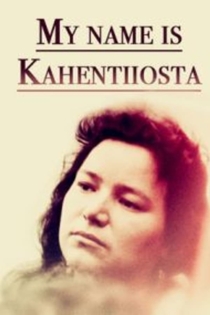
We Can't Make the Same Mistake Twice
Alanis Obomsawin
The new film from celebrated documentarian Alanis Obomsawin (Kanehsatake: 270 Years of Resistance) chronicles the events following the filing of a human-rights complaint by a group of activists, which charged that the federal government's woefully inadequate funding of services for Indigenous children constituted a discriminatory practice.
We Can't Make the Same Mistake Twice
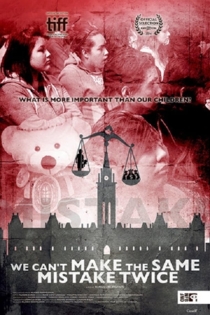
Les Événements de Restigouche
Alanis Obomsawin
Alanis Obomsawin
Incident at Restigouche is a 1984 documentary film by Alanis Obomsawin, chronicling a series of two raids on the Listuguj Mi'gmaq First Nation (Restigouche) by the Sûreté du Québec in 1981, as part of the efforts of the Quebec government to impose new restrictions on Native salmon fishermen. Incident at Restigouche delves into the history behind the Quebec Provincial Police (QPP) raids on the Restigouche Reserve on June 11 and 20, 1981. The Quebec government had decided to restrict fishing, resulting in anger among the Micmac Indians as salmon was traditionally an important source of food and income. Using a combination of documents, news clips, photographs and interviews, this powerful film provides an in-depth investigation into the history-making raids that put justice on trial.
Incident at Restigouche
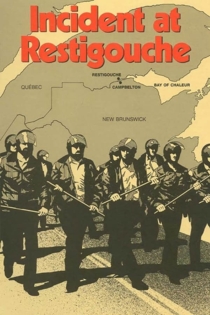
Pluie de pierres à Whiskey Trench
Alanis Obomsawin
Alanis Obomsawin
The fourth film in Alanis Obomsawin's landmark series on the Oka crisis uses a single, shameful incident as a lens through which to examine the region's long history of prejudice and injustice against the Mohawk population.
Rocks at Whiskey Trench
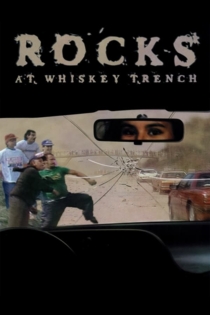
Poundmaker's Lodge: A Healing Place
Alanis Obomsawin
This short documentary by Alanis Obomsawin takes us to Poundmaker's Lodge, a treatment centre in St. Albert, Alberta, that welcomes Native people troubled by addiction to drugs and alcohol. Named after a 19th-century Native leader, the centre offers a space where Natives can come together for mutual support, partake in healing rituals like the sweat lodge, and rediscover their traditions. The film shows the despair of a people dispossessed of land, culture, language and dignity, and their strength and courage in overcoming substance abuse.
Poundmaker's Lodge: A Healing Place

Waban-Aki: People from Where the Sun Rises
Alanis Obomsawin
Having dedicated nearly four decades to chronicling the lives of Canada's First Nations, Alanis Obomsawin returns to the village where she was raised to tell her own people's history of prosperity, displacement, endurance, and revitalization.
Waban-Aki: People from Where the Sun Rises
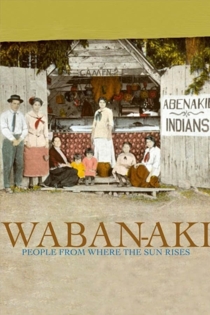
Mother of Many Children
Alanis Obomsawin
Alanis Obomsawin
This film is an album of Native womanhood, portraying a proud matriarchal society that for centuries has been pressured to adopt different standards and customs. All of the women featured share a belief in the importance of tradition as a source of strength in the face of change.
Mother of Many Children
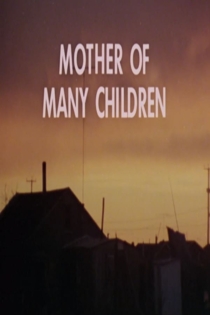
No Address
Alanis Obomsawin
This feature-length documentary by Alanis Obomsawin examines the plight of Native people who come to Montreal searching for jobs and a better life. Often arriving without money, friends or jobs, a number of them quickly become part of the homeless population. Both dislocated from their traditional values and alienated from the rest of the population, they are torn between staying and returning home.
No Address
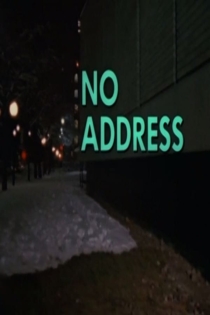
Amisk
Alanis Obomsawin
Alanis Obomsawin, Duke Redbird
A performing arts film by Alanis Obomsawin, it documents efforts to raise funds for the James Bay Cree and was made at a time when Cree territory was threatened by hydro-electric projects. Amisk represents early work by Obomsawin, a trailblazer in Canadian Aboriginal film.
Amisk
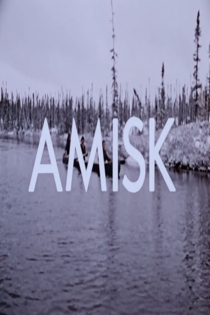
When All the Leaves Are Gone
Alanis Obomsawin
Rosalie Dumas, Marie-Josée Corneau
As the only First Nations student in an all-white 1940s school, eight-year old Wato is keenly aware of the hostility towards her. She deeply misses the loving environment of the reserve she once called home, and her isolation is sharpened by her father’s serious illness. When Wato’s teacher reads from a history book describing First Nations peoples as ignorant and cruel, it aggravates her classmates’ prejudice. Shy and vulnerable Wato becomes the target of their bullying and abuse. Alone in her suffering, she finds solace and strength in the protective world of her magical dreams.
When All the Leaves Are Gone
